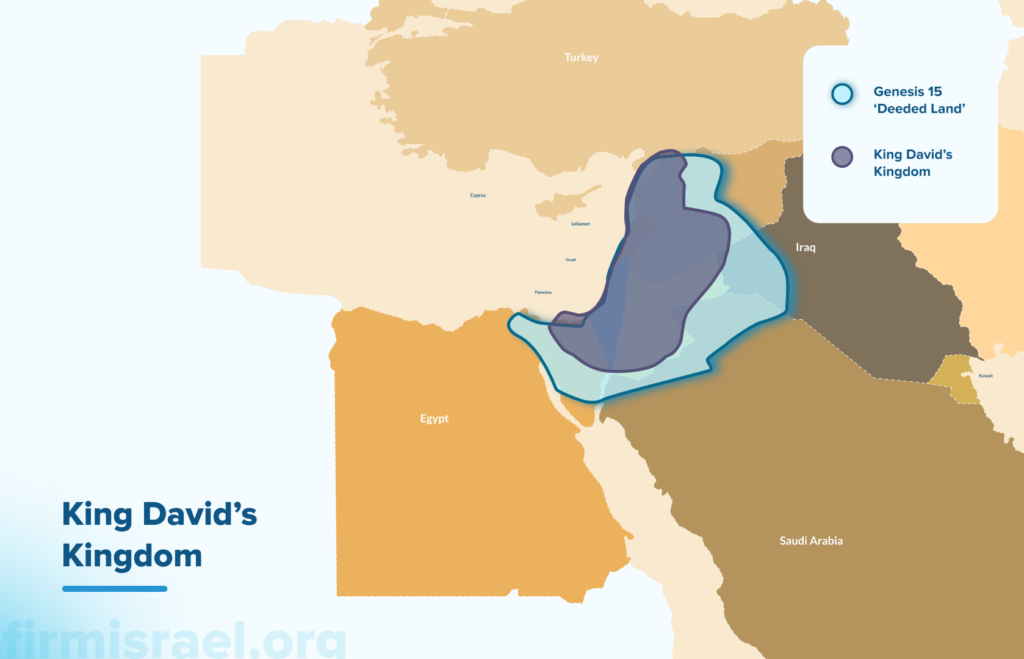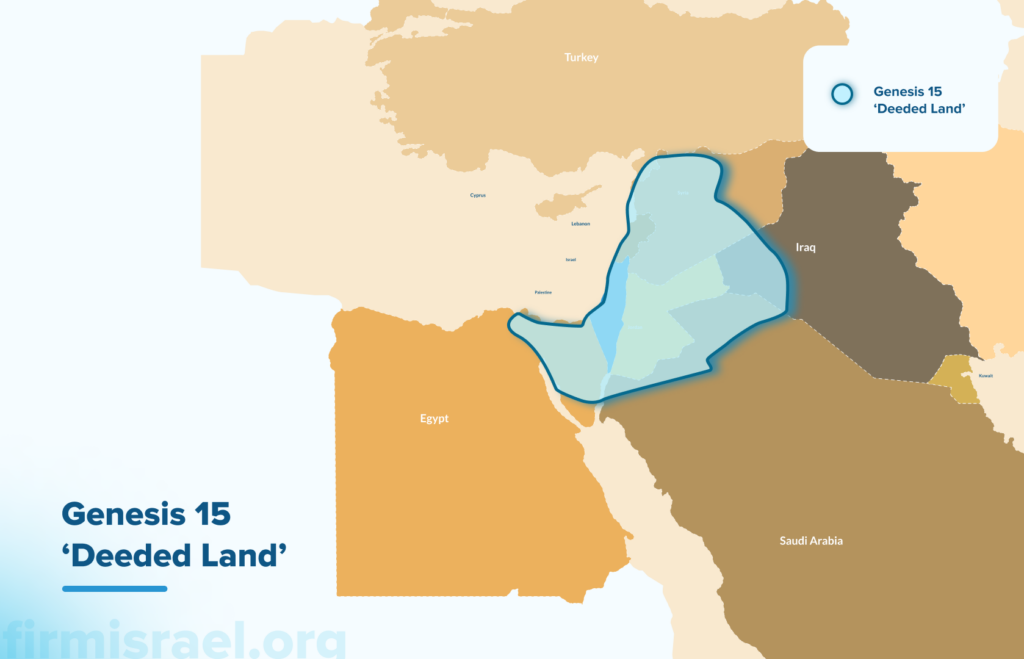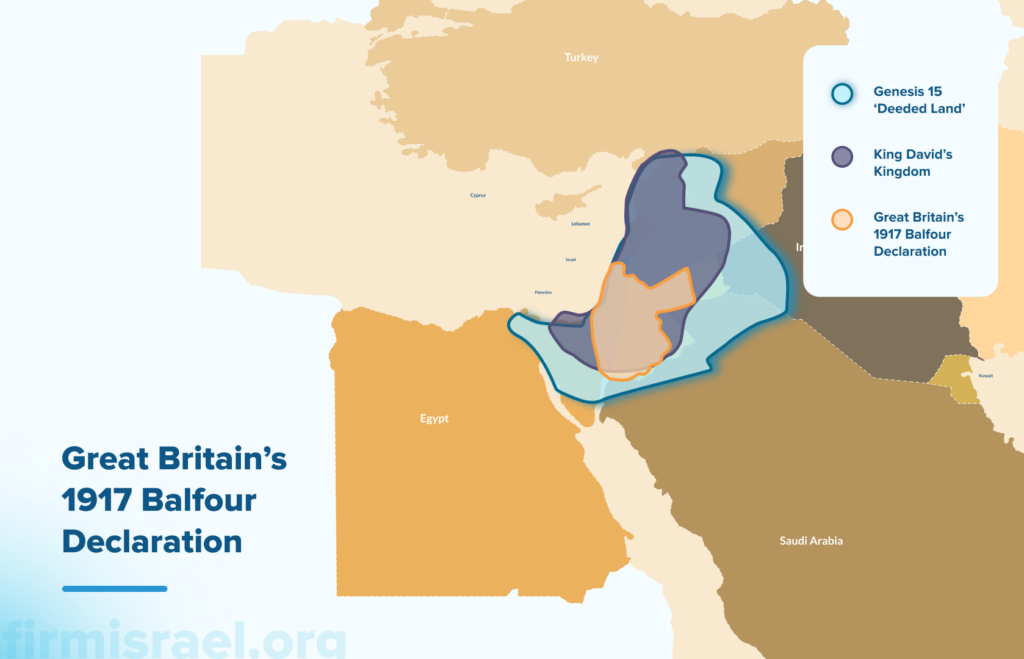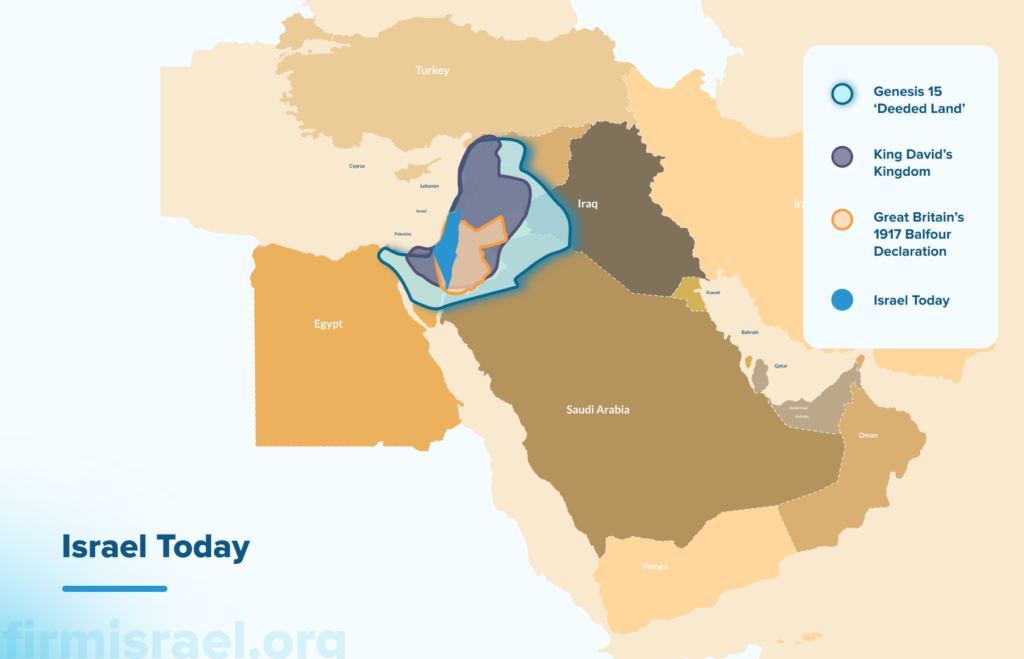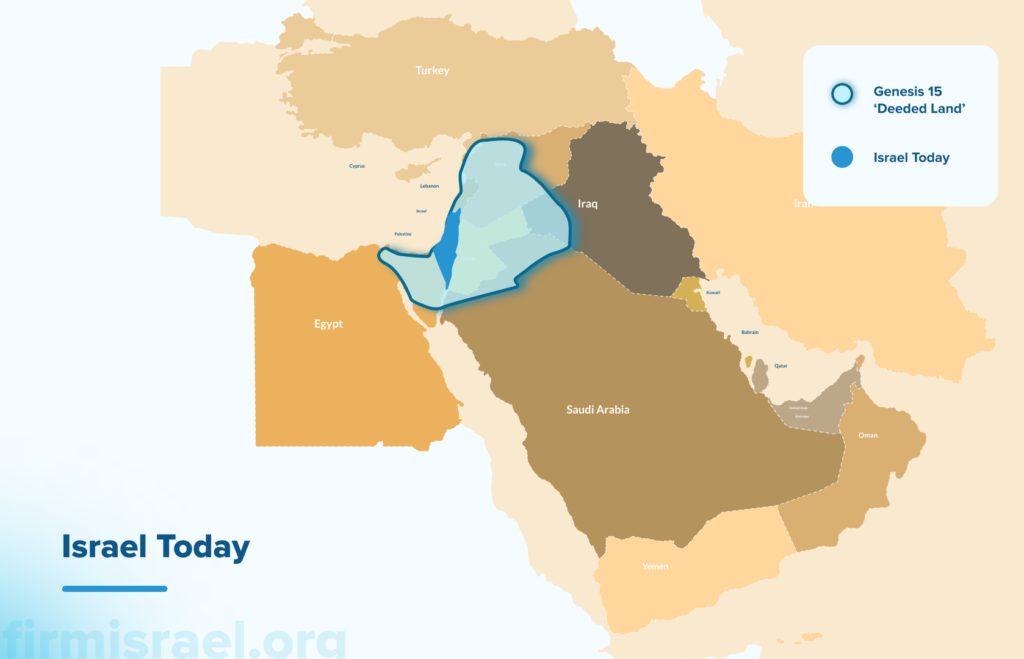Palestinian and Israel History Today
There is a common narrative that Israel’s protesters seem to repeat at every rally and in every social media post. They believe that Israel and the Jewish people are occupying the land that belongs to the Palestinian people. You may have heard it presented as one of the reasons why Hamas attacked Israel, and why many Palestinians support what Hamas has done.
Israel Colonization History
Thus, a lot of times you’ll hear, especially among the protesters who are pro-Palestinian and antisemitic, that Israel is a colonialist state. Many today believe that this conflict is based on Israel’s illegitimate existence in the land, and Hamas is trying to take it back for their people and for the Islamic cause.
So, what is the truth? To know what is true, we need to study the history of the land and the people, both Palestinian and Israeli.
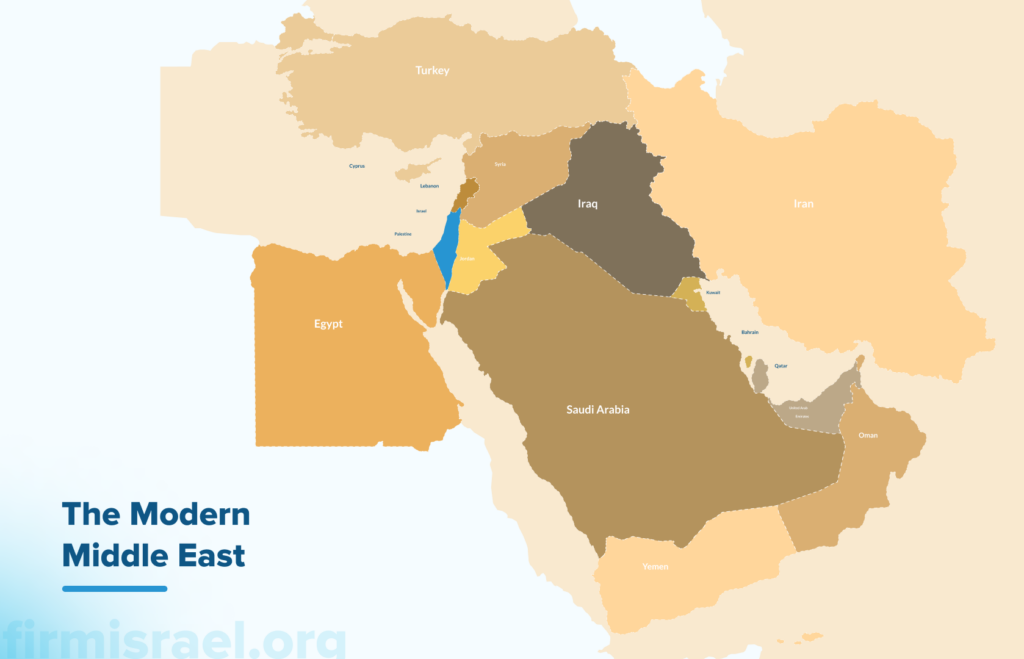
What does the Bible say about Palestine?
Let’s make it clear from the start. The Jews are the indigenous people of the land of Israel who have been living in this land 2,100 years before anyone even called or referred to it as “Palestinian.”
The Jewish people were living in this land millennia before Islam was ever a religion. For those who don’t want to embrace or believe the Bible as a historical record, then at least look at archeological evidence.
Archeological Evidence
There is an Egyptian stele—an ancient stone slab with markings on it—from the 13th century B.C. that speaks of Israel by name as “the land.” There’s also a Canaanite stele from the 9th century B.C. that refers by name to King David as “the king of the land of Israel.”
So, if you don’t want to believe the Bible, there are thousands of years’ worth of well-documented artifacts that confirm the Jews lived in this land.
Historical Claims to the Land of Israel
So, how come there are others who claim this to be their land? It is because the history of the land has been complicated, and it started already in biblical times. In 586 B.C., the Babylonians attacked and besieged Israel. Since then and until 1948 of our era there was no sovereign Jewish state in this land.
In that period—from 586 B.C. to 1948, so roughly 2,500 years—the Jews were dispersed from their land. They were enslaved, exiled, and killed around the world. They have been oppressed and discriminated against.
The Jews who managed to stay alive in their homeland were dominated by other world empires. Here’s their list: The Babylonians, then the Persians, then the Greeks, then the Romans, then the Byzantines, then the Arab Islamic Empire, then the Catholic Crusaders, then the Mamluks, then the Ottomans, and then the British Empire.
So, because of all these various empires coming and going, it is no wonder that everybody wants to say, “No, it’s my land! – No, it’s mine!” But history proves that the Jews were there before any of this began.
Where are Palestinians from?
From where did the Palestinian people come? To answer this question, we need to first understand where their name came from.
In A.D. 135, the Roman Emperor Hadrian, in order to quash a Jewish revolt, dispersed the Jews from Jerusalem. And then, he renamed the entire region “Palestina.” He chose this name because it was the Latin term for the Philistines.
The History of Philistines and Israelites
Why would Hadrian choose to do that? Because the Philistines were the perennial enemies of the Jews. So, Hadrian, to dishonor the Jewish people after the revolt against the Roman Empire, not only took away their land, but also named it after their worst enemy. He did it out of spite.
From that day on, the people living in the land were known as “Palestinians.” The Arabs living here were called Palestinians, but so were the Jews! Yes, the Jews were also called Palestinians until 1948. If you were a Jewish person born in this land before the establishment of modern-day Israel, your birth certificate would state “Palestinian”.
Thus, the Arab people living in this region today are known as “Palestinians” because of a deceptive name that a Roman Emperor gave the region to spite the Jews.
The Land and the Promise
God promised a son to Abraham – Isaac, so that, according to Genesis 15:18, God could give his descendants the land from the Nile to the Euphrates River.
God’s original intent for the Jewish people was to occupy a territory that stretched from the Nile River in Egypt to the Euphrates River in today’s Iraq and Syria. Israel never occupied this much land!
As we fast forward through history, we see the Babylonians storm in, the Greeks, then the Romans… later, the Mamluks arrive, and more recently the Ottoman Turks. The last ones were occupying this land during World War I, at which point Great Britain helped defeat them. As a result, the land became a part of the British Mandate.
The British Mandate in Israel and Palestinian History
In 1917, the Brits enforced a doctrine called the Balfour Declaration, because they understood that the Jewish people had been dispersed, scattered, killed all around the world. The Jews needed to be able to return to their homeland.
Everybody understood this was Jewish territory for 4,000 years. So, already after the first world war it was determined that the homeland for the Jewish people should be here. The borders of the 1917 Balfour Declaration encompassed the British Mandate.
But in 1922, the Hussein family objected. The Husseins were Arab and didn’t like the idea of the Jewish people receiving so much land. And so, Winston Churchill, who was the secretary of state over the colonies of Great Britain at the time, before becoming prime minister, took a crayon and drew a line on a map, down the Jordan River.
First Land Dispute in Modern Palestinian and Israel History
In order to appease the Hussein family, Churchill reneged on the promise of the Balfour Declaration. He drew a line down the middle of the British Mandate and said the east side would be called “Transjordan” (as it was across the Jordan River) and the west side would be “Palestine” (a Jewish Palestine). r
The Hussein family still controls that territory, which in 1946 was named Jordan, as it is today. Today’s King Abdullah of Jordan is part of the Hussein family. Thus, the eastern side of the Jordan River became the Kingdom of Jordan.
Meanwhile on the western side of the river, on May 15th, 1948, the Jewish people reclaimed their land and occupied what is just a fraction of what God originally intended.
The Only Jewish Homeland
When you look at history, it is clear that the Jews are not colonialists. Because what is a colony? There is no other nation they pay taxes to. There is no other Jewish country. The Jewish people are the indigenous people who, like a traditional Hebrew song says, have no other land.
And make no mistake – this is not because Great Britain told Israel they can have the western side of the Jordan River. It is because God deeded this territory, and much more to them, in Genesis 15.
Gen Z Activating around the “Free Palestinian” Cause
Today’s young adults are very concerned about humanitarian causes. They are concerned about the underdog, the disadvantaged, and people without a voice. That’s good! Young people should really be commended for that! We should never stop caring for disadvantaged people.
Because of their compassion, they are quick to jump on certain causes and become passionate about them. And so, they want to end sex trafficking, world hunger, they are concerned about the environment, and so many other worthy causes. We should encourage them to never stop caring for people. Their compassion is needed.
But here’s the challenge.
They need to know why they are part of any cause. It is easy to jump on the bandwagon of the latest cause without knowing why it is an issue. If you can’t even intellectually defend it, you will end up looking silly.
Learn the History of Israel and Palestinians
Many people, both young and older adults, don’t know the history of the land of Israel I just shared with you. And so, many young activists believe a false narrative that the Jews are the occupiers.
It is good to have compassion for the Palestinian people. But don’t forget what happened on October 7th, 2023, and stop trying to accuse the Israelis of being the bully. There are 22 Arab states, 52 Muslim states, and 1 Jewish state. Who’s the bully? You tell me.
I am not trying to defend everything the Jewish people have done since 1948. Returning to their homeland was messy. It was met with resistance and there was a war. Some Palestinian families were displaced from their homes, and it created great animosity that lasts until this day. But to say that the land belonged to the Palestinians and the Jews just took it by force in 1948 is simply incorrect. It is intellectually dishonest.
The Root of the Issue
What feeds many young people who care about humanitarian causes? It makes them feel good to take a stand. We all have a guilty conscience, and without God, we try to assuage a guilty conscience by taking up good causes.
This is called “moralistic therapeutic deism.” In 2005, a Harvard doctor who now teaches at Notre Dame, Dr. Christian Smith, coined this term to describe the young adult generation making a god out of humanitarian causes.
The moralistic part is, “I want to do good.” And when you do good, you feel good – that’s the therapeutic part. But when you make a god out of it – which is the deism part –is very dangerous.
Instead of trying to “feel good” from this sense of humanitarian help, get your “feel good” from a relationship with God. Stick close to Jesus, and you’ll know what is good, and right, and pure.
The International Indifference
The United Nations refuses to acknowledge Hamas as a terrorist organization. The UN has already been putting pressure on Israel to “show restraint” and that their response needs to be “proportionate.”
Many government officials are starting to codeword similar sentiments, essentially saying, “Be careful Israel” and “Don’t be too harsh.” If other nations, including the USA, begin to think that Israel is taking things too far, they might step back and stop supporting Israel.
Other frightening scenarios could involve other international conflicts heating up even more (whether involving Ukraine, Taiwan, or the southern border of the United States) and demanding greater attention or involvement of key Israel supporters. It is possible that the United States would have to tell Israel, “Sorry, we now have our own battles to fight.”
Get Ready!
Jesus is coming again, so get right with God. And in the meantime, pray. Pray for Israel. Pray for the Palestinian civilians caught in the crosshairs. Ultimately, pray for the Prince of Peace to come and reign Himself, as the Jewish Messiah and the King of Kings.
Articles Related to Palestinian and Israel History: the Land and Prophecy
Estimated reading time: 9 minutes
